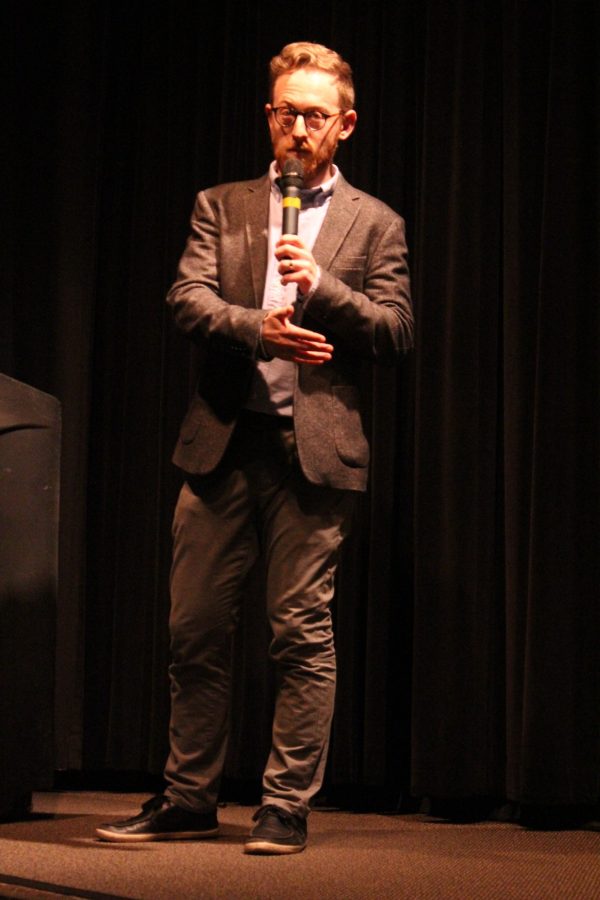The Jewish History Museum and Holocaust History Center put on the fourth annual Elizabeth Leibson Holocaust Remembrance Lecture in the Gallagher Theatre on Thursday, Feb 13. at 7 p.m., featuring Andrew Marantz, a staff writer for The New Yorker and author of the book “Antisocial.”
There were about 100-120 attendees of the lecture, which was organized into two parts: a lecture presentation by Marantz and a community conversation, which was a big part of why the lecture was held at the university.
The lecture by Marantz revolved around the theme of “how the unthinkable become thinkable, and then it becomes reality,” tying into his book “Antisocial,” which centers on how social media have been hijacked by hateful ideologies and created cyber monsters.
RELATED: Raymond H. Thompson’s legacy
The Jewish History Museum and their partners sponsored this lecture to bring awareness to how social media has not only fueled hateful ideologies, specifically anti-semitism, but has also radicalized normal people into “Nazis.” Marantz spoke on how this happened: The people who idealized social media were too optimistic with the mindset of techno-utopianism.
Barriers were not created to safeguard against the spiraling of social media and the hateful people that would come to ruin it, therefore enabling people like the ones Marantz interviewed and observed for over three years in research for his book.
Marantz wrote “Antisocial” to bring awareness to what the internet is doing to us as a society.
“I didn’t set out to find the most fringe, extremist figures on the internet. It was more, ‘What happens if we completely disrupt and disintegrate all the known structures? What happens if we get rid of all the rules?’” Marantz said on what fueled him to embark on his project. “Turns out, you get a lot of dark, twisted people with easy access to an audience that will listen.”
Marantz highlighted that he is not against the internet but more wanted to point out the flaws in social media and the negatives that have come out of it, as well as the people it has given power to. At the end of his lecture, Marantz gave three suggestions for what we can do, since throwing our laptops and smartphones away isn’t a realistic solution.
His first suggestion was for us to be smart skeptics.
“There is smart skepticism … and dumb skepticism,” Marantz said. “There is a kind of skepticism that is the bedrock of intellectual integrity. Questioning claims, where does your evidence come from — this is good skepticism.”
His second suggestion is that free speech is just a starting point, meaning that we all believe in free speech and need to engage in meaningful conversations on how to deal with hostile people even if we all believe in free speech.
Marantz’s last suggestion was to make decency cool again — to make being courteous on social media cool again.
“We are not going to police our way out of the problem,” Marantz says. “Making something illegal doesn’t make it disappear.”
The Jewish History Museum is located in Barrio Viejo on Stone Avenue and features Arizona’s only Holocaust History Center. They have weekly drop-in visitor hours and host many events and programs to connect the Jewish community in Southern Arizona.
Follow Maggie Rockwell on Twitter









